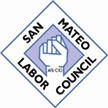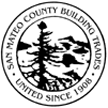The Fight Against the Trans-Pacific Partnership Heats Up

Opposition to the Trans-Pacific Partnership (TPP) trade agreement has increased over the past few months as some of the language in the proposed trade treaty has been made public and many members of Congress have expressed opposition to Fast Tracking the deal. The AFL-CIO also called for a “New Approach to Trade and Globalization” in a Resolution at its convention in September.
The TPP is a massive new international trade pact being pushed by the U.S. government at the behest of transnational corporations. It is already being negotiated between the United States, Australia, Brunei Darussalam, Canada, Chile, Malaysia, Mexico, New Zealand, Peru, Singapore, Vietnam, and most recently, Japan—which together cover approximately 40 percent of the global economy. It is poised to become the largest Free Trade Agreement in the world.
The Citizens Trade Campaign (CTC) noted that, “The Obama administration’s embrace of the Bush-negotiated Korea, Panama and Colombia Free Trade Agreements leaves many worried that the Trans-Pacific Partnership will become nothing but a massive new NAFTA-style agreement. Indeed, while none of the negotiating text for the FTA has ever been officially released, it is already clear that trade negotiators are using past free trade agreements as their basic starting point for this one. The leaked text of several chapters, in fact, show rollbacks from the Bush years on topics like access to medicine and zero progress on investment.” The ongoing, multi-year negotiations over the TPP are supposed to conclude this year, and as such, the window of opportunity for preventing it from becoming a new “NAFTA for the Pacific Rim” is rapidly closing.
Congress: No Fast Track
The Citizens Trade Campaign reported in November that, “Fair trade advocates are praising the release of a new letter voicing Congressional opposition to Fast Track, a policy-making process that allows trade pacts to circumvent ordinary Congressional review, amendment and debate procedures.” The CTC noted that, “The November 13 letter [to President Obama], spearheaded by Representatives Rosa DeLauro (D-CT) and George Miller (D-CA), was signed by three quarters of the House Democratic Caucus, and comes on top of other recent letters signed by Republicans and Democratic members of the Ways & Means Committee. Taken together, the letters demonstrate a strong bipartisan demand for better oversight over the pending Trans-Pacific Partnership (TPP) Free Trade Agreement than Fast Track would allow.”
San Mateo Congressmembers Anna Eshoo and Jackie Speier signed on to the letter.
“This isn’t a left-right issue; it’s a right-wrong issue,” said Citizens Trade Campaign Executive Director Arthur Stamoulis. ”All Members of Congress should add their voices to the chorus opposing Fast Track’s outrageously anti-democratic type of policy making.” The Obama administration’s Office of the U.S. Trade Representative (USTR) and various corporate lobby groups have urged Congress to pass new Fast Track legislation for the TPP and other pending trade agreements. The administration has said they are pushing to complete the TPP negotiations by the end of 2013, although few observers believe they will meet that deadline.
Secrets Revealed
The anti-democratic nature of the process for enacting the TPP was revealed with the release by the online whistleblower site WikiLeaks of some of the TPP text that was described as a offering a bonanza of special rights for corporations. Language relating to “investment, intellectual property, regulatory coherence and drug formularies” reveal that the Office of the USTR is pushing for special rights for transnational corporations that would come at the expense of environmental protection, consumer safety and access to safe medicine.
“Americans deserve the right to know what U.S. negotiators are proposing in our names,” said Stamoulis. ”In the absence of transparency on the part of our government, we have a responsibility to share what information we receive about the TPP with the public.” The leaked documents have enabled public interest groups, academics and individual citizens throughout the world to respond to the TPP with a much higher degree of specificity and shine a light on the secretive pact. Details and analysis of the pact, and the leaked documents, can be found at https://wikileaks.org/tpp/pressrelease.html and on the CTC website at www.citizenstrade.org.
Labor Rights
The CTC noted that among the questions yet to be answered about the TPP are its provisions regarding Labor rights, such as, “Will the Trans-Pacific Partnership FTA include labor standards based on International Labor Organization conventions, and if included, how will they be enforced?”
In adopting Resolution 12: “America and the World Need a New Approach to Trade and Globalization,” at its 2013 Convention, the AFL-CIO noted that, “Over the past 25 years the United States negotiated trade agreements that both reflected and promoted the rise in corporate power at the expense of working people. It has created a system of global governance—by global corporations—with no counterbalance or check on growing corporate power. These agreements have fueled the profits of companies that have outsourced and offshored, but they have suppressed American workers’ wages and their standard of living.
“Global enterprises seeking to suppress wages, pollute our air and water and violate our fundamental labor rights must no longer be the architects of trade policy. Instead, trade policies must empower workers to organize and act collectively to ensure their work is safe, secure and fairly paid; that they have adequate access to education, recreation and decent housing; and that their elected representatives work to advance the general welfare rather than substituting corporate interests in their place and hoping for some trickle-down benefits.”
The AFL-CIO resolution concluded: “Because trade and globalization agreements encompass these important policy issues that go far beyond tariff reductions, we strongly support increased congressional consultation, participation and oversight in trade policy formation and increased public participation and scrutiny both during the negotiation process and after implementation. Twentieth century-style ‘fast track’ trade promotion authority, which we continue to strongly oppose, was undemocratic and wholly inadequate to provide the transparency, accountability and oversight necessary to the task, and was part of the reason working families have been left behind by these agreements.”
Regarding the TPP, the AFL-CIO noted that, “While at the outset of negotiations, the agreement had great potential to set down rules for people-centered trade, it now seems likely to be yet another in a long string of trade agreements that elevate corporate interests at the expense of working people. It appears unlikely the agreement will rectify the mistakes of past trade policy, particularly in the areas of currency, rules of origin, procurement, deregulation, labor rights, public services, investment, access to medicines, environmental protections or financial services.”
More resources, information and the lastest news about the TPP can be found at: http://www.citizen.org/TPP#informed and http://citizen.typepad.com/eyesontrade/
|
|





